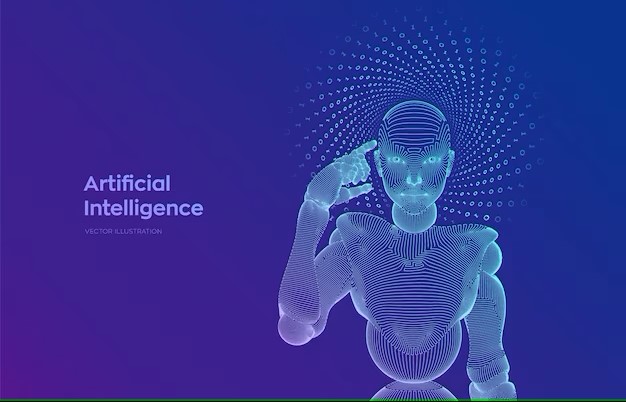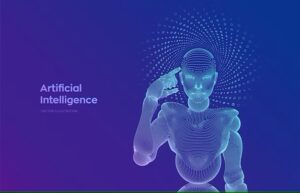
In the ever-evolving landscape of technology, artificial intelligence (AI) has continued to make remarkable strides, transforming industries and redefining the way we live and work. As we step into 2023, AI has firmly established itself as a driving force in our daily lives, with an unprecedented impact on various sectors. In this blog post, we will explore the state of AI in 2023, highlighting its advancements, applications, challenges, and the ethical considerations that come with it.
Advancements in AI Technology
The year 2023 marks a pivotal moment in the evolution of AI technology. Key advancements have been made in several domains, propelling AI to new heights.
- Natural Language Processing (NLP): NLP has seen substantial progress, with AI systems now capable of understanding and generating human-like text. This has given rise to more sophisticated chatbots, virtual assistants, and language translation tools that can carry out complex conversations and tasks.
- Computer Vision: Computer vision applications have become increasingly accurate and robust. AI can now recognize and analyze images and videos with a high level of precision, enabling a wide range of applications, from autonomous vehicles to healthcare diagnostics.
- Deep Learning: Deep learning techniques have continued to lead the way in AI advancements. Neural networks with unprecedented depths and complexities have been developed, allowing AI systems to tackle intricate problems such as drug discovery, climate modeling, and financial forecasting.
- Quantum Computing: Quantum computing has emerged as a game-changer in AI research. With its immense processing power, quantum computers are capable of solving complex AI problems at unprecedented speeds, unlocking new possibilities in drug discovery, cryptography, and optimization.
- AI in Healthcare: AI applications in healthcare have grown substantially. AI-powered diagnostics, personalized treatment recommendations, and drug discovery have improved patient outcomes and reduced medical errors.
AI Applications in 2023
AI’s influence extends far beyond technological achievements; it has become an integral part of our daily lives.
- Autonomous Vehicles: Self-driving cars and trucks are now a common sight on the roads. AI algorithms power these vehicles, enhancing safety and convenience while reducing accidents and congestion.
- Personalized Marketing: AI-driven algorithms are continuously improving the effectiveness of personalized marketing. Recommendation systems and targeted advertisements use data to predict consumer preferences and drive sales.
- Smart Cities: AI is being used to create smarter and more efficient urban environments. Traffic management, energy conservation, waste disposal, and public safety are all benefiting from AI’s capabilities.
- Education: AI-driven platforms are personalizing education, adapting content and pacing to individual students’ needs. This approach has the potential to revolutionize the education sector by making learning more engaging and effective.
- Cybersecurity: With the rising complexity of cyber threats, AI plays a crucial role in identifying and mitigating security breaches in real-time. It can analyze vast datasets to detect anomalies and protect sensitive data.
Challenges and Ethical Concerns
While AI’s progress is commendable, it’s not without its challenges and ethical concerns.
- Bias and Fairness: AI systems can inherit biases present in their training data, leading to unfair and discriminatory outcomes. Addressing bias and ensuring fairness in AI algorithms remains a significant challenge.
- Privacy Concerns: The widespread use of AI raises questions about data privacy. Striking a balance between collecting data for AI applications and safeguarding individuals’ privacy is a continuing concern.
- Unemployment: As AI automation increases, there are concerns about job displacement. Preparing the workforce for AI-driven changes and ensuring that the benefits are distributed equitably are ongoing challenges.
- Security: AI can be exploited for malicious purposes, such as deepfake generation and cyberattacks. Developing robust defenses against AI-driven threats is an ever-evolving battle.
- Regulatory Frameworks: Governments and organizations are grappling with the need for regulatory frameworks to ensure responsible AI development and deployment.
The Path Forward
AI in 2023 is a reflection of the relentless pursuit of innovation and the potential to make our lives better. As we move forward, it’s essential to address the challenges and ethical concerns associated with AI. Here are a few ways to ensure a bright future for artificial intelligence:
- Transparency and Accountability: Developers and organizations must be transparent about how AI systems make decisions and be accountable for their actions.
- Diverse and Inclusive AI: Promote diversity in AI development to reduce biases in algorithms and ensure that AI benefits all members of society.
- Education and Reskilling: Invest in education and reskilling programs to prepare the workforce for AI-driven changes.
- Ethical Guidelines and Regulations: Establish clear ethical guidelines and regulatory frameworks to govern AI development and use.
- Collaboration: Foster international collaboration in AI research to share knowledge, expertise, and best practices.
In conclusion, artificial intelligence in 2023 represents the convergence of innovation and reality. Its advancements have touched nearly every facet of our lives, from healthcare to transportation, and are opening up new possibilities in fields that were once deemed untouchable. As AI continues to shape our future, it is our collective responsibility to ensure its development is guided by ethical principles, fairness, and accountability. By doing so, we can harness the full potential of AI for the betterment of humanity.




